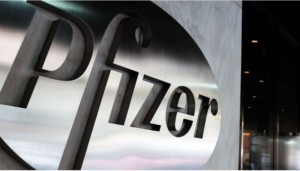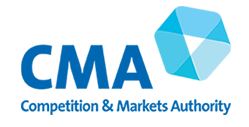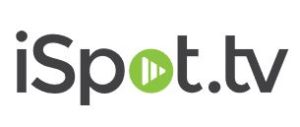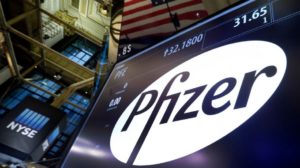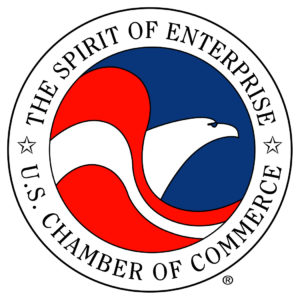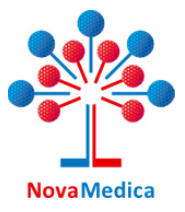- Nevada is out of the execution business, at least for now (reviewjournal.com)
Dozens of killers are on the state’s death row, but should any of their appeals bottom out, it would be impossible to do away with any of them...One of the two drugs needed to administer an execution by lethal injection in Nevada has expired and the drug manufacturer has refused to provide any further supplies, state officials were told Tuesday...the medication provided by the drug company Pfizer....Without the drug, the state has no way to administer an execution...The department ( Nevada Department of Corrections) is moving forward with a national request for proposals to find the drug or an equivalent...the agency would use the drugs midazolam and hydromorphone to administer a lethal injection...Both of these drugs are manufactured by Pfizer..."Pfizer makes its products to enhance and save the lives of the patients we serve," the company said in a statement issued earlier this year. "Consistent with these values, Pfizer strongly objects to the use of its products as lethal injections for capital punishment."
- Drugmakers Split on Whether to Include Interchangeability Statement in Biosimilar Labels (raps.org)
Drug, biologic and biosimilar companies’ comments on Food and Drug Administration draft guidance on biosimilar labeling reveals a major split between those who do and do not want a statement on a biosimilar’s interchangeability status on each new product's label...FDA has still yet to release its guidance on what interchangeability means, and as FDA has not found any biosimilar to be interchangeable with its reference product…
- Amgen says it...believes a biosimilar label should include a summary of the clinical data, including immunogenicity data, used to demonstrate biosimilarity or interchangeability…
- Pfizer said...biosimilars should not be labeled "as though they were small molecule generic drugs" and that it "recommends that biosimilar labeling include a statement reflecting whether interchangeability has been assessed."
- Merck & Co...says "that a single blanket approach applicable to all biosimilar products is not appropriate, and may cause unnecessary confusion among stakeholders."...recommends that rather than using such blanket statements, FDA take a risk-based approach for each biosimilar…
- Boehringer Ingelheim says that it "does not agree that a biosimilar label needs to include a ‘biosimilarity statement,’...Such information is not ‘essential scientific information needed by health care practitioners for the safe and effective use of a drug.’
- Sandoz...says... "It is self-evident that the very act of highlighting the indications that are extrapolated is being proposed by some groups in order to raise doubts as to the safety and efficacy of the biosimilar for those indications, and perhaps to also imply inferiority of biosimilars across the board.
- Pfizer agrees to opioid marketing deal to escape a lawsuit by Chicago (statnews.com)
Pfizer reached an agreement with the city of Chicago to follow a code of conduct for marketing opioids that officials hope will become standard practice for other companies...The drug maker agreed last week to disclose in all promotional materials that opioids carry a risk of addiction and not to promote them for any unapproved uses...Pfizer must make clear that there is insufficient research about the effectiveness of opioids if used beyond 12 weeks…Some industry watchers, meanwhile, said that the four-year agreement, which does not pertain to any other city or state, largely requires Pfizer to adhere to existing laws and regulations governing drug marketing. For this reason, they said the agreement breaks little new ground in the battle against inappropriate or overprescribing of opioids..."This landmark agreement is a big step in the right direction to help protect and educate the public about the true risks and benefits of highly potent and highly addictive painkillers," said Chicago Mayor Rahm Emanuel in a statement...It’s in Pfizer’s interest to highlight the addictive properties of opioids because they have a competing product under development (tanezumab)...When a company comes out slamming a particular class of drugs, it’s generally because they have a competitor in the wings. Think of this as prelaunch marketing, which can start long before the launch...
- Pfizer delay, alleged price gouging earns wrath of British watchdog (fiercepharma.com)
In case anyone thought it was just the U.S. where pharma has been accused of hiking prices, the U.K. has been quick to remind everyone it happens across the pond as well, after hitting Pfizer with a £10,000 ($14,100) penalty this week...What for? Technically, because it was late to submit documents demanded by the country’s Competition and Markets Authority --but in reality, this all revolves around one thing: pricing, and this is just the warm up act ahead of the watchdog’s bigger decision this fall--which could see Pfizer with a fine in the billions of pounds...in September of that year (2012) the drug (phenytoin sodium) lost its patent, and Pfizer sold it to Stevenage...while several other drugmakers also sold their generic versions. Cue a massive spending hike: the NHS paid £50 million for the drug in 2013, and £40 million in 2014. This left the pricing watchdog scratching its head: aren’t generics supposed to be cheaper?...The CMA is still sifting through all the documents and will come to a decision in August on whether Pfizer did abuse its market position. The maximum fine for this is a far more substantial 10% of its global turnover--which would work out as $4.89 billion based on last year’s revenues.
- Pharma brings the heat in July as TV ad spending soars (fiercepharma.com)
Pharma marketers must have missed the memo about the dog days of summer. TV spending by the top 10 pharma advertisers topped $140 million, making the total for July the highest since January, according to data from real-time TV ad tracker iSpot.tv...Disease awareness campaigns were prominent last month, with two marketers debuting in the top 10 group. Merck, which began a campaign to promote the importance of HPV vaccinations in June, landed at No. 7, spending $9.9 million split between that HPV ad and an ongoing campaign aimed at encouraging shingles vaccinations for older people. Merck markets Gardasil for HPV and Zostavax for shingles...July was also a big month for diabetes marketers on TV, with total spending of $64 million on TV ads for the month. That category was led by Pfizer’s Lyrica, which maintained the No. 2 spender spot for the third month in a row...Watch the ads...
- Humira (adalimumab) - "Teacher"
- Lyrica (pregabalin) - "Coach"
- Xeljanz XR (tofacitinib) - "Mother"
- Entresto (sacubitril/valsartan) - "Tomorrow"
- Toujeo (insulin glargine) - "Journal"
- Eliquis (apixaban) - "DVT and PE Blood Clots"
- Merck disease awareness ads - "HPV Vaccination"
- Victoza (liraglutide) - "Moment of Truth"
- Mylan disease awareness ads - "Allergic Reactions"
- Tresiba (insulin degludec) - "Ready"
- Pfizer agrees to settle shareholder class action on Celebrex and Bextra (fiercepharma.com)
Pfizer’s Bextra (valdecoxib) has not been on the market in more than a decade, but the litigation tied to it and pain drug Celebrex (celecoxib) continues to play out. The New York drugmaker has now put to rest a long-running class action by Pfizer shareholders who said a controversy over the drugs’ safety whacked the stock price and cost them a lot of money...Pfizer last week reached an agreement-in-principle to resolve the securities class action case for all defendants...the resolution is pending court approval and the terms are confidential until a formal agreement has been approved...The pain drugs made Pfizer a lot of money, at one time being among the company’s best-selling meds. But the controversy over their risks has also cost it tremendously. In 2009, Pfizer agreed to hand over $2.3 billion to settle a Department of Justice probe into its marketing of Bextra...And last year, the drugmaker settled another related investor suit for $400 million.
- Pfizer building modular biologics plant in China (fiercepharma.com)
Pfizer will build a biologics plant in China, where it will make biosimilars for the Chinese market but also for sale throughout the world. The New York drugmaker has turned to GE for construction of the facility, which has developed a modular construction process that will cut the cost and allow the plant to be operational in about 18 months, instead of three years...The $350 million facility, which it is building at the Hangzhou Economic Development Area in China, will be Pfizer’s third biologics production facility and its first in Asia. In addition to manufacturing, the facility will house Pfizer China’s Biosimilars and Biologics Quality, Technical Service, Logistics and Engineering divisions, and serve as a site for process development and clinical supplies. It will have about 150 employees when it is complete in 2018…The new center will be built using GE’s single-use technology…likened assembly to working with LEGO blocks...
- Business groups sue U.S. gov over tax rules that spoiled ‘Pfizergan’ (fiercepharma.com)
Pfizer and Allergan weren’t the only ones that were unhappy with the U.S. Treasury’s April move to block their $160 billion proposed megamerger. The U.S. Chamber of Commerce and one Texas business group were, too--and now they’re doing something about it...The pair sued the federal government...claiming that the Treasury Department’s move to tighten the reins on inversion deals violated the law...According to the allegations, the government tweaked the Internal Revenue Code itself after Congress refused to get on board with President Barack Obama’s inversion-limiting legislative changes--and the way Thomas Donohue, the chamber’s president and CEO, sees it, "this is not the way government is supposed to work."..."Instead of breaking the rules to punish companies engaged in lawful transactions, Washington should just do its job and comprehensively reform the tax code...The inversion crackdown that scuttled the Pfizergan transaction wasn’t the first of its kind. The April actions represented the third time the U.S. Treasury took matters into its own hands, with the first set--in October of 2014--toppling a proposed AbbVie-Shire merger....
- Pfizer strikes second deal this year for drug production in Russia (fiercepharma.com)
Pfizer was a little behind some of its peers in establishing local manufacturing in Russia but it's on a roll now, having just announced its third deal in several years. It is hammering out an agreement with Russia’s NovaMedica for a new manufacturing plant...Construction will begin this year on a plant in Russia’s Kaluga region with the expectation that the plant will be producing drugs by 2020...Pfizer...not yet disclosing how big of an investment the New York company will make in the manufacturing facility...The Pfizer deal calls for NovaMedica to license technology for production of more than 30 products including treatments for cancer, inflammatory disease and fungal infections, it said. Most of the drugs are on Russia’s essential medicines list...
- Spending On Drugs Will Drop As Top Sellers Go Generic (forbes.com)
...IMS Health disclosed that total spending on prescription drugs in 2015 rose 12.2% to almost $425 billion. Since drug pricing continues to be a major topic of discussion...What is striking about the newly released data are the drugs Americans spend the most on... cholesterol-lowering drug Crestor, with sales of $6.3 billion...this will soon become moot as Crestor will lose patent protection and become a generic drug, an event that will likely drive down its cost by as much as 90%...rheumatoid arthritis drug, Amgen’s Enbrel, with U.S. sales of $6.6 billion last year. The FDA is now reviewing a biosimilar version of Enbrel which was filed by...Sandoz...Given that Zarxio was launched at a 15% discount to Neupogen, a similar discount could be anticipated for a biosimilar Enbrel...rheumatoid arthritis, Humira (adalimumab) from AbbVie . Many analysts believe that Humira’s $10.6 billion in 2015 revenue will be severely impacted by biosimilars being developed by Merck, Amgen, Pfizer and others...one might expect even larger discounts than 15%...the top drug with respect to spending in the, the hepatitis C drug Harvoni from Gilead, weighing in at $14.3 billion. It is unlikely that the sales of this drug will decrease any time soon. However, the use of hepatitis C drugs to cure this infection will reduce the incidence of liver cancer, thereby lowering overall costs to the healthcare system over the coming years...there will be new–and expensive–breakthrough drugs emerging from the pipelines of the biopharmaceutical industry. But let’s not lose sight of the fact that these same drugs that save lives or alleviate the suffering of millions, eventually will become a lot cheaper.

